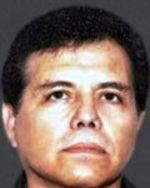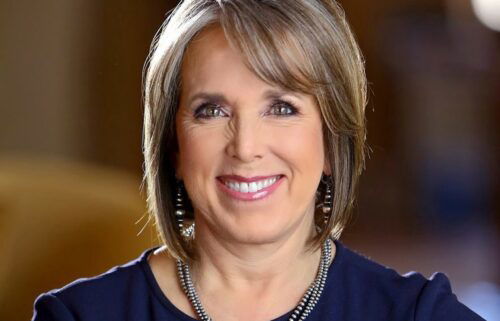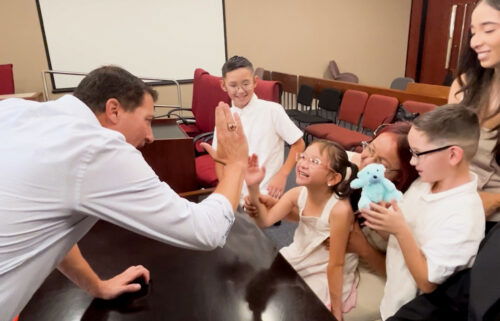Donating vaccines before Canadians can be vaccinated could be politically risky, experts say
Click here for updates on this story
TORONTO, Ontario (CTV Network) — Canada’s global reputation is at stake experts warn as the country receives over 2 million COVID-19 vaccines per week through June and July with another 9 million from Pfizer slotted for August, but won’t commit to donating doses to the global vaccine-sharing alliance COVAX.
While sharing vaccine doses hasn’t been on the table, Canada has doubled its monetary pledge to COVAX, from $220 million to $440 million. At the end of May, COVAX said it needed an additional $2 billion to help vaccinate people in low-income countries, but has a more immediate need for COVID-19 vaccine doses from wealthy countries who have been able to vaccinate large swaths of their population.
“[COVID-19] will go on for a while. Unfortunately it’s hard to know exactly how long but it will certainly continue to plague countries and harm lives,” infectious disease specialist Dr. Isaac Bogoch told CTVNews.ca in a phone interview on Friday.
With four variants of concern taking hold across the world, we’re already seeing the damage that can be done in unvaccinated populations. The B.1.617 variant, also known as the Delta variant, has been found in multiple countries and is wreaking havoc on populations with little to no immunity.
“It appears that it’s in African settings now, and of course that’s really problematic because there’s very limited access to vaccines in those settings, so we’re going to sadly see more and more negative impact from this virus the longer we take to vaccinate,” he said.
The main concern is the countries that haven’t been able to vaccinate much of their population at all. According to Our World in Data, 24 countries have vaccinated less than one per cent of their populations. Globally, just 11.38 per cent of the population has been vaccinated, a far cry from the estimated 40 to 90 per cent required to establish herd immunity.
“When we look at the likelihood of getting out of this, how we actually climb ourselves out of this mess globally, the only way to do that is through global vaccines,” Joy Fitzgibbon, assistant professor at Trinity College, University of Toronto, told CTVNews.ca in a phone interview on Wednesday.
In Canada, and wealthy countries across the globe, the focus of vaccination has been largely on their own populations, but there should be more conversation involving citizens about a global effort to stop the spread of COVID-19, says Fitzgibbon.
“In terms of public discussion I don’t think we’ve framed it that way,” said Fitzgibbon. “It would be helpful if we could, for Canadians, to really understand the way out of this.”
Even as Canada begins to eye a post-vaccination life, or a two-dose summer, the future of travel outside of the country remains uncertain, particularly as global vaccinations trickle out and variants take hold.
“The director general of WHO was right: COVID anywhere is COVID everywhere,” she said.
Even after Canada has vaccinated the majority of its population, the pandemic won’t end. According to the WHO, a pandemic is defined as a disease that spreads worldwide. Until there is no spread across continents, the pandemic will continue.
“The right thing to do is to support global vaccine equity. It’s also in Canada’s best interest to do so,” said Fitzgibbon.
But convincing countries to donate their vaccines is a hard line to walk, politically speaking. Donating vaccines to other countries while the Canadian population remains unvaccinated could be a risky political move, says Jeremy Kinsman, former Canadian ambassador to Russia and the U.K
“That’s perfectly normal, and it’s also normal for politicians to see that this question is, it’s the highway to re-election so they’re not taking any chances with Canadian public opinion,” Kinsman told CTVNews.ca in a phone interview.
With a federal election possible, he said that the focus is on domestic issues and securing a majority government.
“We’re not looking at the global picture because everybody is running for re-election,” he added. “In Canada we’ve got people running for re-election in the provinces and federally.”
A federal election could be called this year, and the Ontario provincial election is slated for 2022.
But wealthy countries like Canada, he said, should think of it as sharing, not taking away from their own population.
“I think the issue is not diverting from national needs to others, it really is simply sharing,” he said.
Good leadership is about more than keeping a close eye on the polls, it’s also about doing what is right, said Kinsman.
“Leadership is actually doing what’s right, and the general consensus in the world, the medical community, is that what’s happening is not right. And there’s gonna be a price for it,” he said.
To make matters worse, Canada used up doses from COVAX, the program it now won’t commit doses to, Kinsman said. Canada received 655,000 doses from COVAX in May.
“We’re the only developed country that’s really taken vaccines out of COVAX,” he said.
The U.K. also used COVAX to acquire vaccines. Similar to Canada, they have donate money to COVAX but haven’t committed to donate doses. Canada and the U.K. are the only two G7 countries who have yet to commit to donating vaccines to the program.
The trouble with donating back our unused AstraZeneca vaccines is that other countries may not look kindly on getting vaccines that Canada has publicly deemed not as good as an mRNA vaccine.
“If we do now say, ‘oh well we we’re not going to use them, here you have it,’ recipient countries say: ‘oh that’s great, they’re giving us stuff they don’t think is safe enough for them.’ And the consequence of it is twofold: one, it increases resentment, but two, it also adds to vaccination reticence,” said Kinsman.
In mid-May, UNICEF called upon G7 countries to donate 20 per cent of their incoming June, July and August vaccine doses. More recently, on June 3, UNICEF and 31 other agencies came together to push Canada to donate 4 million doses by the end of June, just 10 per cent of the doses expected by that time.
“Canada has ordered more doses per capita (more than 10) than any other country and therefore has a responsibility to share with the world,” the groups said in a statement.
But International Development Minister Karina Gould said that Canada is still working towards immunizing all Canadians and therefore doesn’t have excess doses to share with other countries.
As of Friday, 68.52 per cent of eligible Canadians have received at least one dose of an authorized COVID-19 vaccine, and 7.51 per cent are fully vaccinated.
“There’s a feeling of real urgency, and there’s a feeling that developed countries don’t get the international reality that unless you get [the vaccine] everywhere, you really don’t get it anywhere,” said Kinsman.
But sharing vaccines with other countries doesn’t necessarily spell political disaster, says Fitzgibbon.
And Canada’s reputation on the global stage could change in light of the decision to hold on to more vaccine doses.
“People are surprised about Canada,” said Kinsman. “We emit compassionate feelings, the perception is that our compassion is not right now translating into deeds…yet.”
Now is a chance for Canada to prove its reputation as true, and Fitzgibbon said that she hopes to see Canada lead other wealthy countries in vaccine sharing.
“We’re supposed to be this deeply compassionate country that plays well with other people in the schoolyard, and embedded within that is this multilateral vision that sort of spans recent history, and commitment to stand with the world’s most vulnerable,” she said. “We have had moments where we’ve done that, in a really, I think beautiful way and this needs to be one of those moments.”
“Canada does have some degree of moral authority; we’ve played these roles before.”
And it doesn’t have to be one or the other, Bogoch said that Canada can both share our supply and continue vaccinating the population.
“It really is the ethical thing to do, but we can do that simultaneously while vaccinating the general population as well.”
With files from the Canadian Press.
Please note: This content carries a strict local market embargo. If you share the same market as the contributor of this article, you may not use it on any platform.
ctvnews.caproducers@bellmedia.ca




